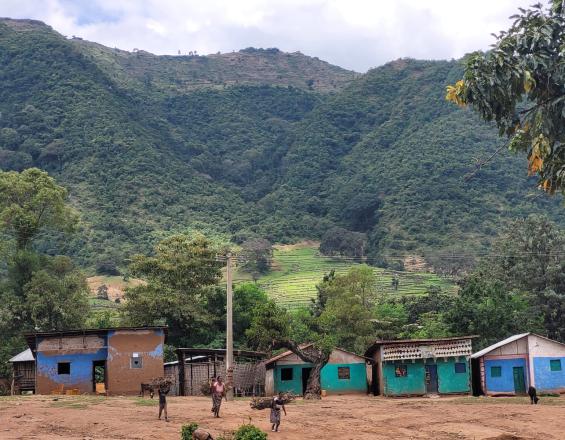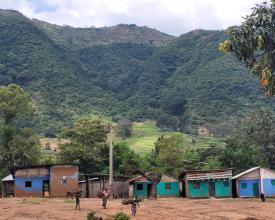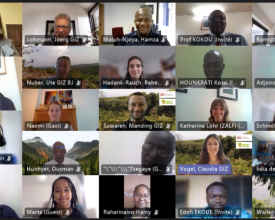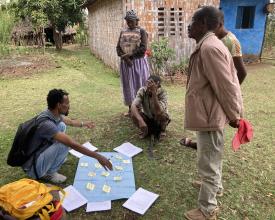
TREES Project: International research tandems for FLR impact assessment

Restoration as a complex issue requires joint actions. Collaboration of policy makers, practioners and scientists is needed to develop and monitor context specific best-fit solutions to regain ecological integrity and enhance human wellbeing in deforested or degraded landscapes. Currently, emphasis is put on ecological and technical solutions thereby neglecting the social dimension of restoration. To strengthen social-ecological focus on restoration and collaboration at the science-practice interface, TREES project performs accompanying research on FLR strategies implemented by GIZ's global project Forests4Future (F4F). Hereby, focus is put on ecological and socio-economic effects as well as questions on governance. Master and PhD students based at universities in Germany and in F4F implementing countries are selected to work on project relevant topics in a tandem approach. Whilst each student has his/her individual research focus, data collection is planned and implemented in the binational tandems;
Context
Challenges addressed
Location
Impacts
Setting up binational research teams contributes toward enhanced complexity thinking through integration of multiple perspectives and disciplines. This facilitates research on FLR implementation for enhanced analysis and solution development as well as capacity building and global learning through North-South and South-South collaborations. Different expertise and perspectives can be integrated in the different PhD and Master Thesis study projects, research design and implementation. Diversified research methods can be implemented in a complementary way to deepen FLR related analysis and combined interpretation perspectives enrich research output. Joined field visits can facilitate students’ access to study sites, interaction with actors on the ground, and increased samples sizes if questionnaires are combined. If questions on data arise or verification is needed upon completion of the field trip, the tandem structure facilitates follow up field visits for complementation or verification of results. Knowledge derived and communicated via multiple channels in Germany and the F4F countries can enhance dialogue at the policy, practice, science interface within and across countries. Research results help to scientifically underpin FLR practices developed by F4F. In Ethiopia, e.g., research topics include modelling land use transformation or restoration sites monitoring and carbon accounting.













